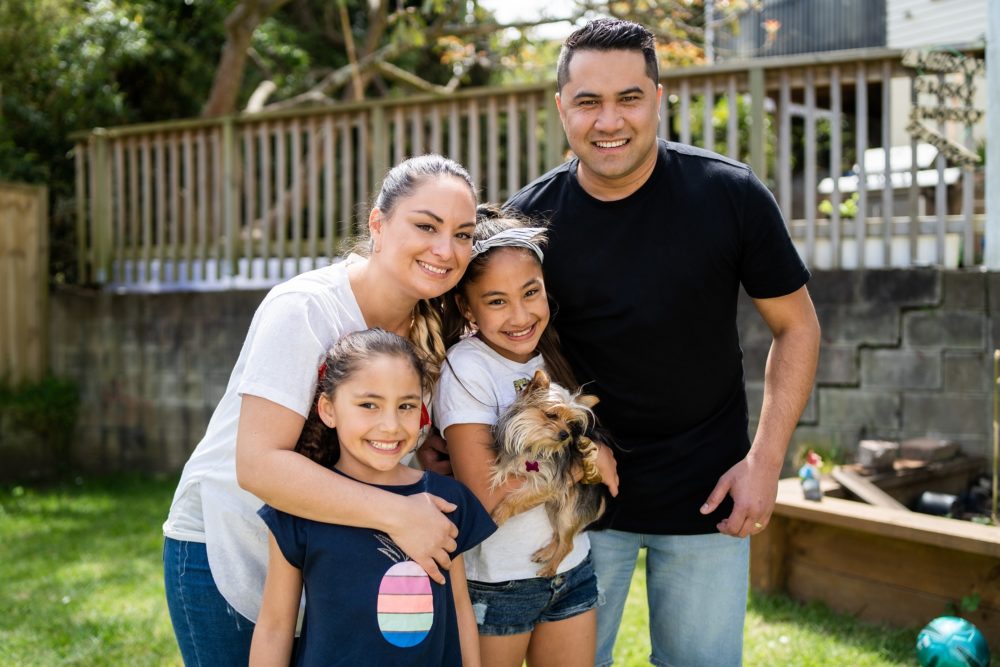If you’re ready to take the next step with your partner, whether that’s moving in, retiring or even breaking up, it’s important to be aware of what it means financially for you and your partner.
Pick a life event
The start of an intimate relationship is a critical time to create mutual financial perspectives and have conversations about money.
Having these conversations early enables you to assess whether, based on the financial information shared, you or your partner want the relationship to proceed; and if it is to proceed, whether certain areas need further discussion.
Even before living together and sharing expenses, there are many opportunities for couples to think about and discuss issues relating to money.
The beginning of a female-male relationship can also be a time where gender norms are established.
Even though many young adults express a strong desire for equality now, there is still often an expectation that first dates proceed in gender-typical ways, with men responsible for initiating, and paying.
Gender dynamics that play out at the beginning of a relationship can become the norm very quickly.
If unequal, these dynamics can cause difficulty when it comes to engaging in discussions about critical financial issues further down the track, such as debt and spending patterns, which may have significant implications on your future.
Even if one person is better with finances than the other, transparency is crucial for any healthy relationship, just as it is with a business partnership.
Right from the beginning, we agreed to be open about how we spent money and what we wanted to work towards.

I have female friends who do all the housework and cooking – I don’t know if that was a choice for them or they fell into it, but I don’t want to just accept that is how it is going to be for me.
We discussed our opinions about debt – what was good/bad debt and how much was too much.

We talked about motivations, what was important and what hobbies we had . These things matter because it’s not just about the money.
I have female friends who do all the housework and cooking – I don’t know if that was a choice for them or they fell into it, but I don’t want to just accept that is how it is going to be for me.

We talked about motivations, what was important and what hobbies we had. These things matter because it’s not just about the money.

Getting ready to move in
Before moving in together, money may have only come up when deciding who’s paying for dinner or the movies.
Living together introduces a whole new range of shared expenses: rent, power, groceries, etc.
This is a really critical time and a good opportunity for you to discuss finances and establish communication channels that can be developed over time.
During this time – conversations about budgeting, saving and how to set up bank accounts can be common.
Regardless of how things are structured, it is important that both parties in a relationship know what is happening with their own money and any joint money.
It is easy for one partner to feel excluded or taken advantage of if there are hidden or unknown money matters occurring in the relationship.
It is also important to know how each others finances have been set up and managed in case of emergencies. If something was to happen to one of you, it makes it easier for the other to take care of bills and expenses.
We wanted to buy a house together but thought we might have to rent first. We had to be really honest about our finances and discuss what was realistic.
I'm happy to go to work and make money. She can stay at home if she wants. I guess I just expected whoever is will do the housework. I haven't really thought that far ahead.
Having children is a crucial time for communication and negotiation around roles, finances, and decision making processes.
The decision to have children often results in one partner reducing their income due to a change in the hours they work or ceasing work altogether to care for the baby or infant.
In female-male relationships, it is typically women who take on this role, and although men often take some time off work to care for the children as they get older – it is still predominately women who are the unpaid carers for the longest periods.
This can have a significant impact on the finances and power dynamics within the relationship, especially if previously both partners earned roughly the same amount and contributed evenly to the household budget.
As well as a reduction in income for couples, having a child increases household expenses and can trigger dual pressure on family budgets. This is often the time when finances need reviewing for the family to remain financially healthy.
Communication can also become harder during this time due to lack of sleep, and ability to make time to spend together.
It is also the time many women feel that the change in their earning capacity makes them less able to be an equal partner in financial matters.
We had the conversation about kids quite early, I wanted to know how it was going to work with income and looking after the children/house.
It was important to talk about this early as my partner [female] earnt the most. It was good to find out what our entitlements might be with IRD and accommodation support from Work and Income.
It was important to talk about this early as my partner [female] earnt the most. It was good to find out what our entitlements might be with IRD and accommodation support from Work and Income.
A blended family is a family consisting of a couple, any children they have had together, and any children from previous relationships.
When one or both people already have a child, or children, from a previous relationship, or are a caregiver, there will be different family economic systems that need to be understood, especially if household incomes are not the same.
To work through these differences and form a new family bond, effort, cooperation, and collaboration will be needed.
To understand how finance will play a role in the relationship, the ‘money talk’ is critical for any blended family conversation.
It is important to be cautious and clear about expectations upfront – talk early and often, and do not compare your situation with that of a ‘traditional’ family, as it will be different.
Depending on your previous family makeup, values, and relationship dynamics there could be a range of unexpected financial matters to discuss.
These could include:









































































































































































The older a couple is, the more financial elements there may be to consider, due to built-up assets, estate planning, and the protection of wealth – especially as finance gets harder to accumulate with age.
It can be useful to draft a mutual plan for merging your relationship and money.
It is important to be on the same page and consistent with your financial decisions, particularly those that directly impact the children. Children may be resistant to change, especially if they don’t see its benefit.
Click here for more information about relationships and growing your money together
Conversation starters
Suggested conversation starters:
I know we see things a little different with our kids, about pocket money and stuff, can we make some time to talk about how that might work when we move in together?
You know I have mentioned that some of my money is tied up with my ex – can we talk about how that will affect my finances?
I haven’t lived with a kid before, and I don’t really know what that will look like – I would be really interested to hear your thoughts?
Since we are going to be a big family with 4 children between us, can we make some time on Friday night to talk about how the finances will work?
Blending families can be scary and unknown territory for many couples; it may be helpful to consider some additional support or guidance, such as a relationship expert, counsellor, financial planner or legal consultant.
Planning retirement
Starting to plan earlier rather than later will put you in a much better position to retire with the lifestyle you want.
There are many factors to consider that will affect what retirement looks like.
Start by answering these questions


QUESTION 1
Are your financial decisions made together?
QUESTION 2
Are your accounts held jointly or remain separate?
How is your household money managed?
QUESTION 4
What is the level of trust between you and your partner?
Will you be involved in financial planning?
QUESTION 6
Are there any investments or savings?
Research suggests that in general, women play a less active role in financial retirement decisions than men. And younger women in relationships are the most disengaged individuals when it comes to couples planning for retirement.
Experience in paid and unpaid work determines economic security in later life, which again means women may be in a disadvantaged position – they are more likely to earn less money than men, take primary responsibility for unpaid caregiving and household chores, and have fragmented work histories.
This combination of factors can leave women in poor financial circumstances in later life, especially if they’ve been in a male-female relationship and money has been kept separate.
As a result, women experience higher rates of poverty than men in old age and are more reliant on the pension as their primary source of income.
“We talked about spending and saving because there is a balance – it’s important to save but also enjoy life.”


Ending your relationship


Financial difficulties and relationship breakdowns are closely related and complex.
Financial difficulties can arise from a relationship breakdown and/or cause a relationship breakdown.
The level of hardship or financial vulnerability experienced by each partner when a relationship ends is influenced by many factors.
These can include:







































































































































































































































Even when all these factors are considered, the financial impact of separation tends to be heavier for women than men in female-male relationships.
In any relationship breakdown, the financial impact is usually worse for the person who becomes the main carer for the children. Single parents are recognised as among the most economically disadvantaged groups of people.
If you’re going through a break-up or divorce and you have shared accounts or children together, it is important that you know what your options are.


Get a reminder so you can continue at a convenient time


“It is great to have the strategies and challenges come together so that you are learning together, sharing together and discovering together”
– Toolkit user
Good Shepherd NZ in partnership with Dr Ayesha Scott
AUT Finance Department
Disclaimer
The information, content and materials provided in our Healthy Financial Relationships Toolkit is for general informational purposes only and does not take into account the financial situation and/or particular needs of any person. Before making important financial decisions, you should seek professional advice if possible. This Toolkit contains links to other third-party websites. Such links are only for the convenience of the reader, user or browser. Good Shepherd NZ and AUT do not endorse the contents of third-party sites.
Did you find this useful?
We are a not-for-profit organisation working to improve the financial and social wellbeing of New Zealanders.
The resources on this website are provided free of charge to make sure they are available for people who need them.
If your organisation found these resources helpful, please consider making a donation to ensure we can continue supporting those people who need our help.
You can also make a donation, or set up a recurring donation, by contacting us directly






